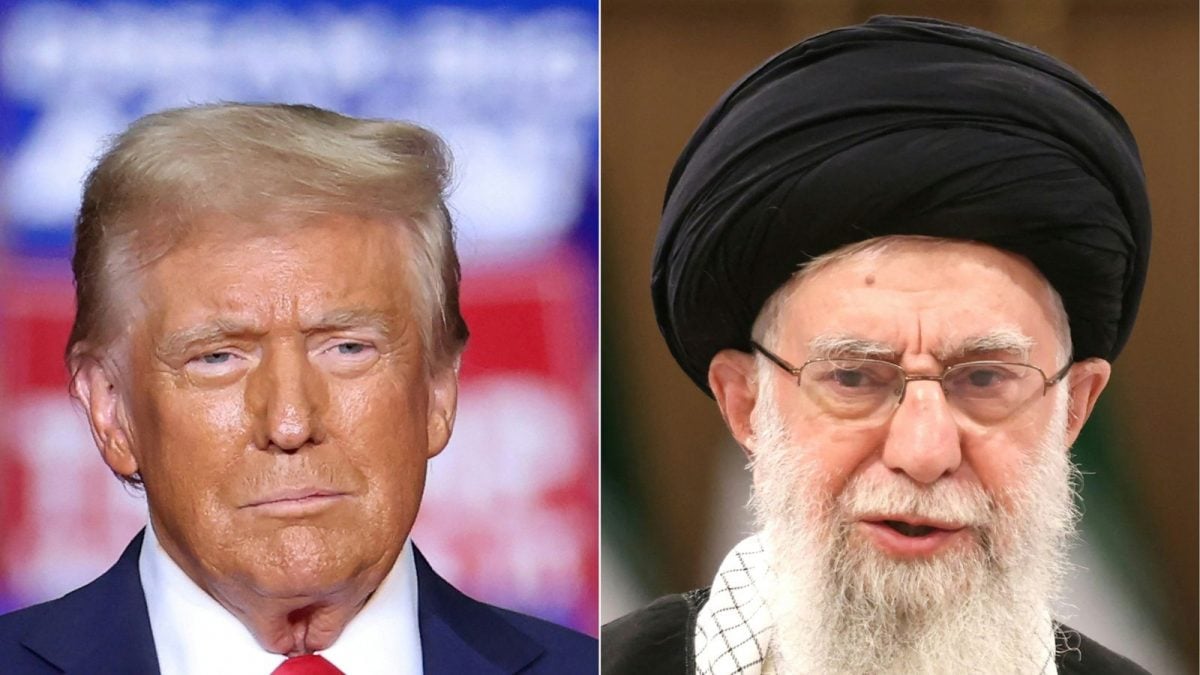ARTICLE AD BOX
Last Updated:June 22, 2025, 23:30 IST
While President Donald Trump remained silent publicly after addressing the nation the previous evening, his top officials spoke at length about the US' motive behind Iran war.

US President Donald Trump (Reuters File Image)
After airstrikes on three Iranian nuclear facilities, the Trump administration on Sunday signalled openness to renewed diplomacy while maintaining that the US does not seek a wider war.
While President Donald Trump remained silent publicly on Sunday after addressing the nation the previous evening, his top officials spoke at length about the US’ motive behind Iran war.
Trump’s top officials, including Vice President JD Vance, Defence Secretary Pete Hegseth, Secretary of State Marco Rubio, and General Dan Caine, Chairman of the Joint Chiefs of Staff, shared their views on the Iran conflict.
Their unified message highlighted that the US aims to deter Iran’s nuclear ambitions, not pursue regime change.
At a Pentagon briefing, Hegseth stated, “America does not seek war," while Vice President Vance told reporters the strikes offered Iran an opportunity to return to negotiations.
“Operation Midnight Hammer," he said, used “decoys and deception," and encountered no Iranian military resistance, according to Hegseth and Gen. Caine.
“This mission was not and has not been about regime change," Hegseth emphasised.
Caine confirmed that the US had struck Fordow, Natanz, and Isfahan, and that all three sites sustained significant damage.
“Final battle damage will take some time, but initial assessments indicate that all three sites sustained extremely severe damage and destruction," he said.
In a TV interview, Vance refrained from discussing classified intelligence but said he was confident the operation had “substantially delayed" Iran’s nuclear weapons program.
“I think it’s going to be many, many years before the Iranians are able to develop a nuclear weapon," he added.
Vance also noted that the US had negotiated seriously with Iran before resorting to military action. “I actually think it provides an opportunity to reset this relationship… and if they’re willing to do that, the United States is all ears."
Secretary of State Rubio told Face the Nation that while there are “no planned military operations right now against Iran," the US would respond if attacked. “Unless they mess around and they attack US interests," he warned.
Despite President Trump’s past promises to avoid extended conflicts, it’s uncertain whether Iran views avoiding escalation as in its own best interest.
Meanwhile, global reaction has been mixed, with some nations fearing the strikes could further destabilise the Middle East, particularly amid an ongoing conflict between Israel and Iran.
Earlier this month, Israeli airstrikes targeted Iranian nuclear infrastructure and military leadership, prompting Iranian retaliation and ultimately leading to the US intervention.
Iran’s foreign minister, Abbas Araghchi, condemned the US strikes, calling them a violation of sovereignty and international law.
“They crossed a very big red line by attacking nuclear facilities," he said. “I don’t know how much room is left for diplomacy."
China and Russia both condemned the attacks, urging a return to political dialogue. Russia called the strikes “a gross violation of international law," while Turkey warned of the risk of escalation to a “global level."
British Prime Minister Keir Starmer said the UK was relocating military assets to safeguard its interests, while leaders of Canada, Germany, Italy, and France all supported a swift return to diplomacy.
The attacks have also raised concerns about potential disruptions to the global oil supply, with Iran hinting at closing the Strait of Hormuz, a key channel for global energy trade.
Oil prices have surged over 20 per cent in the past month as tensions in the region escalated.
The Pentagon did not provide new details on Iran’s current nuclear capabilities. Hegseth said the operation followed a 60-day window Trump gave Iran to engage in talks.
“Iran found out that when Trump says 60 days… he means it," Hegseth said. “Otherwise, that nuclear program… will not exist."
Caine and Hegseth added that B-2 bombers launched from Missouri, supported by a deception plan involving decoy aircraft, executed the strikes using 14 bunker-buster bombs. The mission ran from 6:40 p.m. to 7:05 p.m. ET on Saturday — approximately 2:10 a.m. in Iran on Sunday.
- Location :
United States of America (USA)
- First Published:
News world Is Trump Open To Renew Talks With Iran After Airstrikes? Here's What Top US Officials Said



.png)
.png)
.png)
















 2 hours ago
6
2 hours ago
6









 English (US) ·
English (US) ·